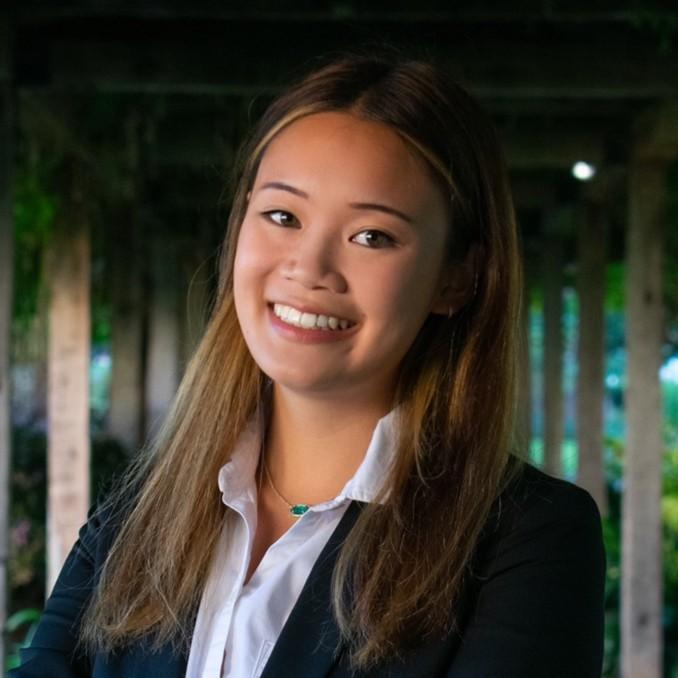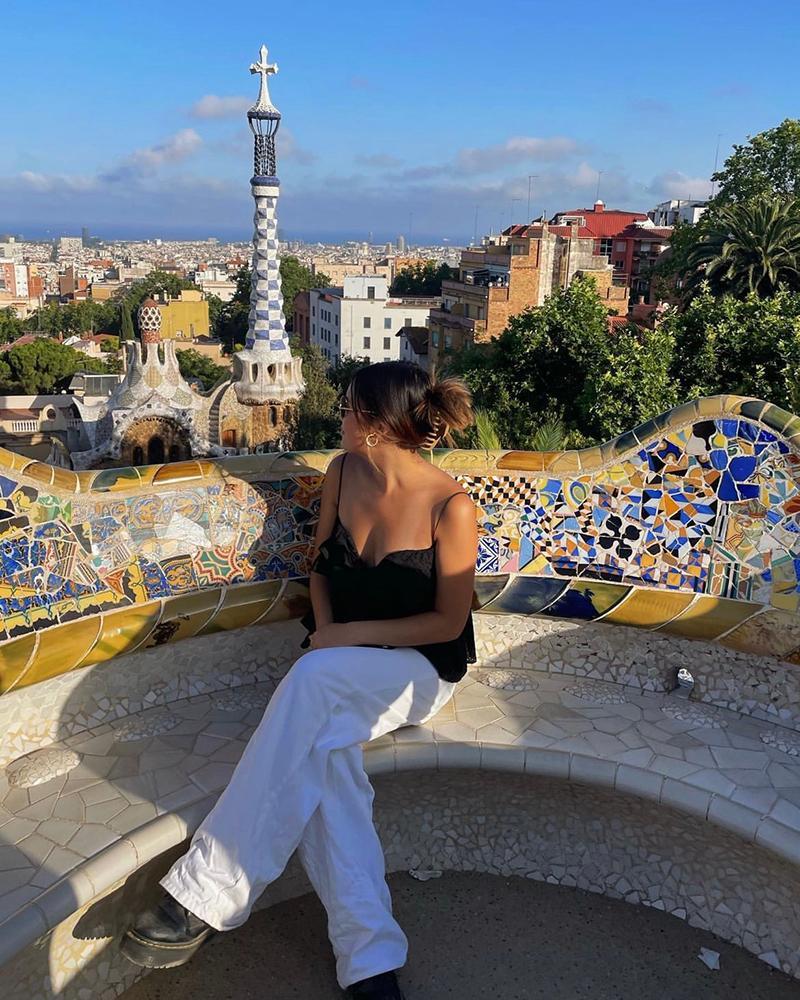
Learning from Discomfort
Immersed in another culture and away from the comforts of home, Melanie Eng ’24 completed an internship in Barcelona, Spain where she gained insight into her future career goals and adopted a more global worldview.
At Santa Clara University, around one third of students study or intern abroad during their junior or senior years. Students benefit greatly from these global experiences as they immerse themselves in other cultures and find opportunities for personal, academic, and professional growth. However, for some students, typical abroad programs conflict with their major requirements at SCU. Melanie Eng ’24, a Neuroscience major, always knew she wanted to study abroad, but didn’t have the opportunity to do so during the regular school year. After hearing about the REAL program through the College of Arts and Sciences, Eng discovered an opportunity to engage in a unique internship experience. Through Academic Programs International (API), Eng participated in an 8-week project-based summer internship in Barcelona, Spain while receiving funding from SCU’s REAL program.

Eng’s internship took place at a startup funded by The Biomedical Institute at the University of Barcelona called Benesit. “Benesit was founded by two UB alumni who created a device that rests on the back of your chair and alerts you with a beep when you have bad posture,” Eng explains. “The device is designed to improve and prevent back pain over time and is connected to an app on your mobile device.” Eng completed a variety of tasks at the startup, including conducting market research on the sale of medical devices in the EU and the U.S., writing and editing user and technical manuals, and developing proposals for incorporating AI technology into the product.
Eng’s knowledge from her Neuroscience major gave her a uniquely interdisciplinary perspective throughout her internship. Required courses in several different fields such as biology, chemistry, and psychology were relevant and useful during her experience. Additionally, Eng’s minor in English proved beneficial as her tasks required translation, writing, and editing skills. In the startup environment, the small number of workers meant that Eng had to pick up skills and work in areas that were often outside of her usual studies. “I ended up learning a lot about areas outside of my normal scope, such as marketing, networking, and law which I did not originally expect, but still found interesting and useful!” she says.
In addition to exploring unexpected skills and fields, the global aspect of this experience gave Eng even more opportunities for growth and knowledge. “I chose to participate in an international internship experience because I wanted to expand my capacities for cross-cultural communication and connectivity, as well as my abilities to communicate and adapt,” Eng says. Having taken Spanish since 6th grade, Eng decided that Barcelona was an ideal place for an internship abroad.
Immersion in another culture did not come without its challenges, but Eng welcomed any cultural differences and allowed herself to grow from the experience. “Get comfortable with being uncomfortable!” she says. “I often craved the comforts of home such as ice and air conditioning, but that is just part of the experience. The most formative part of research abroad is a lack of comfort and familiarity. I spent much of my experience being uncomfortable, but not ungrateful, which really broadened my worldview and made me grateful for what I had in the U.S.”
“The most rewarding part was meeting all sorts of people from different countries, backgrounds, and languages,” Eng explains. In addition to gaining a more global perspective and strengthening her academic and professional skills, Eng also found that her internship helped her discover what type of work environment she would like to be a part of in the future. “I really enjoyed the intimacy and camaraderie associated with the startup space, and I loved getting to know my fellow interns and mentors well,” she explains. Although she doesn’t have a specific career path in mind, working at the intersection of science and technology throughout this experience helped Eng solidify her goal of pursuing a career in the biotechnology field.
About the REAL Program
The REAL Program provides paid experiential learning opportunities for undergraduate students in the College of Arts and Sciences. Developed to allow students to discover their interests, gain a rich understanding of a particular field, discern their career goals, and explore future employment fields, the program has distributed roughly $2.2 million to more than 550 students across all majors since its inception in 2018. Placements range from non-profit and community service organizations to research labs, governmental organizations, and beyond.